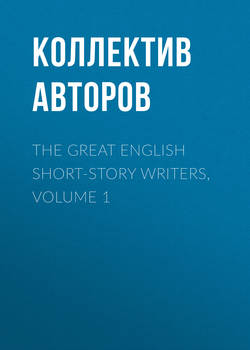Читать книгу The Great English Short-Story Writers, Volume 1 - Коллектив авторов, Ю. Д. Земенков, Koostaja: Ajakiri New Scientist - Страница 4
THE EVOLUTION OF THE SHORT-STORY
IV
ОглавлениеThe influence of the Gesta Romanorum is most conspicuously to be traced in the work of Gower, Chaucer, and Lydgate; but it has served as a source of inspiration to the flagging ingenuity of each succeeding generation. It would be tedious to enter on an enumeration of the various indebtednesses of English literature to these early tales. A few instances will serve as illustration.
It seems a far cry from the The Ingoldsby Legends to The Deeds of the Romans, nevertheless The Leech of Folk-stone was directly taken from the hundred and second tale, Of the Transgressions and Wounds of the Soul. Shakespeare himself was a frequent borrower, and planned his entire play of Pericles, Prince of Tyre, upon the hundred and fifty-third tale, Of Temporal Tribulation. In some cases the language is almost identical, as for instance in the fifth tale, where the king warns his son, saying, "Son, I tell thee that thou canst not confide in her, and consequently ought not to espouse her. She deceived her own father when she liberated thee from prison; for this did her father lose the price of thy ransom." Compare with this:
"Look to her, Moor; have a quick eye to see; She has deceived her father, and may thee."5
But the ethical treatment of the short-story, as exemplified in these monkish fables, handicapped its progress and circumscribed its field of endeavor. Morality necessitated the twisting of incidents, so that they might harmonize with the sermonic summing-up that was in view. Life is not always moral; it is more often perplexing, boisterous, unjust, and flippant. The wicked dwell in prosperity. "There are no pangs in their death; their strength is firm. They are not in trouble as other men; neither are they plagued as other men. They have more than heart could wish." But the art of the teller of tales "is occupied, and bound to be occupied not so much in making stories true as in making them typical."6
The ethical method of handling fiction falls between two stools; it not only fails in portraying that which is true for the individual, but it incurs the graver error of ceasing to be true to the race, i.e., typical.
It would be interesting, had we space, to follow Shakespeare in his borrowings, noticing what he adopts and incorporates in his work as artistically true, and what he rejects. Like a water-color landscape-painter, he pauses above the box of crude materials which others have made, takes a dab here and a dab there with his brush, rarely takes all of one color, blends them, eyes the result judicially, and flashes in the combination with swiftness and certainty of touch.
For instance, from the lengthy story which appears as the hundred and first tale in Mr. Douce's edition of the Gesta, he selects but one scene of action, yet it is the making of Macbeth– one would almost suppose that this was the germ-thought which kindled his furious fancy, preceding his discovery of the Macbeth tradition as related in Holinshed's Chronicle.7
The Emperor Manelay has set forth to the Holy Land, leaving his empress and kingdom in his brother's care. No sooner has he gone than the regent commences to make love to his brother's wife. She rejects him scornfully. Angered by her indignation, he leads her into a forest and hangs her by the hair upon a tree, leaving her there to starve. As good-fortune will have it, on the third day a noble earl comes by, and, finding her in that condition, releases her, takes her home with him, and makes her governess to his only daughter. A feeling of shame causes her to conceal her noble rank, and so it comes about that the earl's steward aspires to her affection. Her steadfast refusal of all his advances turns his love to hatred, so that he plans to bring about her downfall. Then comes the passage which Shakespeare seized upon as vital: "It befell upon a night that the earl's chamber door was forgotten and left unshut, which the steward had anon perceived; and when they were all asleep he went and espied the light of the lamp where the empress and the young maid lay together, and with that he drew out his knife and cut the throat of the earl's daughter and put the knife into the empress's hand, she being asleep, and nothing knowing thereof, to the intent that when the earl awakened he should think that she had cut his daughter's throat, and so would she be put to a shameful death for his mischievous deed."
The laws of immediateness and concentration, which govern the short-story, are common also to the drama; by reason of their brevity both demand a directness of approach which leads up, without break of sequence or any waste of words, through a dependent series of actions to a climax which is final. It will usually be found in studying the borrowings which the masters have made from such sources as the Gesta Romanorum that the portions which they have discriminated as worth taking from any one tale have been the only artistically essential elements which the narrative contains; the remainder, which they have rejected, is either untrue to art or unnecessary to the plot's development.
These tales, as told by their monkish compiler, lack "that harmony of values and brilliant unity of interest that results when art comes in" – they are splendid jewels badly cut.
5
Othello, act I, scene III.
6
From a Humble Remonstrance, in Memories and Portraits, by R.L. Stevenson.
7
The Chronicle of England and Scotland, first published in 1577.
